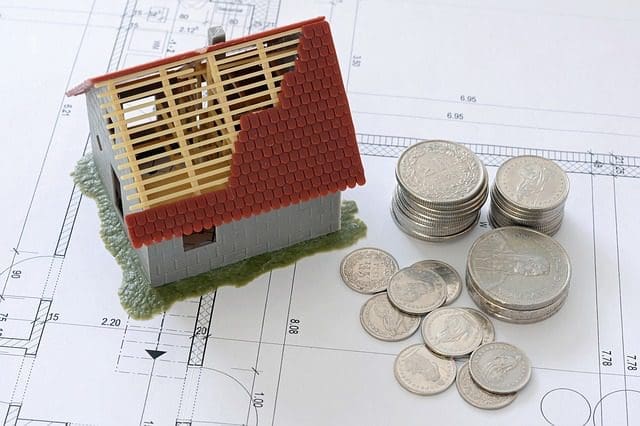For anyone that wants to settle down and start a family, buying a property is a crucial investment. It allows you to put down roots, create a stable home for your children to grow up in, and give you tangible assets. There is a lot that goes into buying a property, and it is important that you prepare properly to ensure you make the smartest choices.
If you are buying a property with your partner, you will need to ensure you are both on the same page. It is best to have a conversation about what you both want from your dream home and compromise when necessary. You should also ensure both of your finances are in good order. This article will explore some of the best ways to prepare for and purchase your dream family home.
Save A Significant Down Payment
The larger your down payment, the better. Most banks will be happy to loan someone with a down payment of between 5 and 20%. The more your down payment, the better terms you can get on your mortgage, meaning lower monthly mortgage repayments. If you hope to start a family, it is a good idea to ensure your monthly outgoings will be as low as possible.

After the birth of a child, one parent may need to give up work or reduce their hours, meaning that your combined household income will be lower. You should factor this into your future planning and ensure that you can live comfortably on only one salary. It is also best to decide which partner will give up work.
Decide What You Need From The Property
It is a good idea to have a list of requirements for your new property. If you don’t know what you want, viewing properties can be a great way to understand what you like and dislike. You should ensure that you and your partner are on the same page regarding requirements. Some common requirements for a family home include a suitable number of bedrooms, a spacious backyard, and garage space.
Consider The Future
Most people will live in their homes for years or decades after purchasing a property. Therefore, it is crucial that you consider your future in a property before buying. Consider the ways your needs may change over the next ten years and whether the property will be suitable to meet those needs.
Learn About DIY Renovations
Most people do some renovations to a property after moving in. To get your dream home, you might need to learn about renovations, and a great way to reduce costs is to do your own renovating. You could take courses to help improve your skills and give you the information you need to do renovations successfully.
Qualified professionals should always do some jobs around the house. Things like electrical work, plumbing, and major construction should always be done by someone who knows what they’re doing.
Find A Fixer-Upper
A fixer-upper can be a great and affordable option. As mentioned above, you will need to be prepared for the hard work to fix up a home. There will be significant disruption as you get your home into shape, so being prepared is critical. You should also ensure you and your partner are on the same page with getting a fixer-upper and have the determination and dedication to make the property your dream home.
Build Up Your Emergency Fund
An emergency fund is vital when buying a property. Not only are there a range of different expenses involved in purchasing a property, but there is also a lot of potential expenses that come with homeownership. You will no longer have a landlord to turn to for repairs, and anything that goes wrong with your property is your responsibility to resolve. You should ensure a significant emergency fund to give you peace of mind. Ideally, your emergency fund should be six months of your usual monthly income.
Improve Your Credit Score

Your credit score can make all the difference to the level of mortgage and repayments you can get from the bank. You should regularly review your credit score to help identify potentially fraudulent activity and help you build a good credit score. There are plenty of ways that young professionals can improve their credit scores. You should keep your credit utilization low and pay your bills on time each month. Avoid dipping into your overdraft where possible and use credit cards sparingly. Always pay off your credit card in full when you use it.
Know Your Financing Options
It is a good idea to learn about the financing options available for you and your partner. Talking to a professional financial advisor can be beneficial. They will have a better idea of which banks to use and what kind of terms you can expect to pay on a mortgage. It can also help to talk to advisors in different banks to help you get a better picture of the kind of mortgages they would be willing to offer you.
Understand Your Take-Home Pay
Knowing how much you have in take-home pay is crucial to help you save and determine how much mortgage you can afford. It is vital to have a clear picture of your joint finances. Taxes can be complicated and vary from province to province.
It is good to use a tax calculator to better understand the income you have to work with. You should also use a tax calculator to figure out how much you will have if one partner reduces their hours for childcare. This British Columbia income tax calculator from Wealthsimple is a great way to help you get the most accurate picture of your income.
Invest Your Money
Investing is just as important as saving. There are many ways to invest your money, and you may see significant returns. This can be ideal for bolstering your down payment and generating wealth over time. You should consider the types of investment out there and start small. It may help to talk with your financial advisor about the best kind of investment.
Research Locations – And Choose Carefully
Location is critical when choosing a property to purchase. You should consider up-and-coming neighborhoods for some of the best prices. You should also consider your family’s future needs. Good schools nearby are crucial for anyone starting a family. It is also a good idea to consider your support system wherever you end up moving. Moving to be near to friends and family can be beneficial to help you navigate the challenges of parenthood.
Get A Thorough Survey
When you settle on a home, it is vital that you have it appropriately surveyed. There might be issues with the property invisible to the untrained eye. It is a good idea to research local surveying businesses and find a professional you can trust. Ensure they offer a comprehensive service and have plenty of positive reviews from satisfied customers.
Understand The Local Weather And Geography
It is good to understand the local weather and geography, so you are prepared. This can help you identify whether your property is at risk of floods or other natural disasters. If there are risks to the property, it is a good idea to ensure you find suitable insurance and take measures to mitigate any threats. If the risk is significant, looking for properties in other areas may be beneficial.
Find Low-Cost Accommodation
One of the biggest obstacles to saving is paying a lot in rent. Rent prices are higher than ever, and the more you spend on rent, the less you will be able to save. Choosing the lowest cost accommodation possible can be invaluable to help you achieve your goal of buying your dream home. There are several ways to do this, though they may not be suitable for everyone.
Renting a room rather than an entire property can be a great way to save on rent. This may be challenging for anyone used to having their own space, as you may need to use shared facilities like the bathroom and kitchen. You could also consider moving back in with your parents if you are able.
Know When To Compromise
Compromise is almost inevitable when buying a property. You are unlikely to find the perfect property straight away, so it is essential to know when to compromise. You should consider the essential things for your home to have and the things that are just nice to have. You should also ensure your partner is on the same page as you with what is essential and what is not.
Find A Quality Real Estate Agent
Building a good working relationship with a local real estate agent is vital. You should find an agent that understands the local property market. You will also need the best service, so it may help to talk to a few different agents and find one you get along well with. Have a conversation with the agent and ensure they understand what you need from your property.
Featured Image by Free Photos from Pixabay





